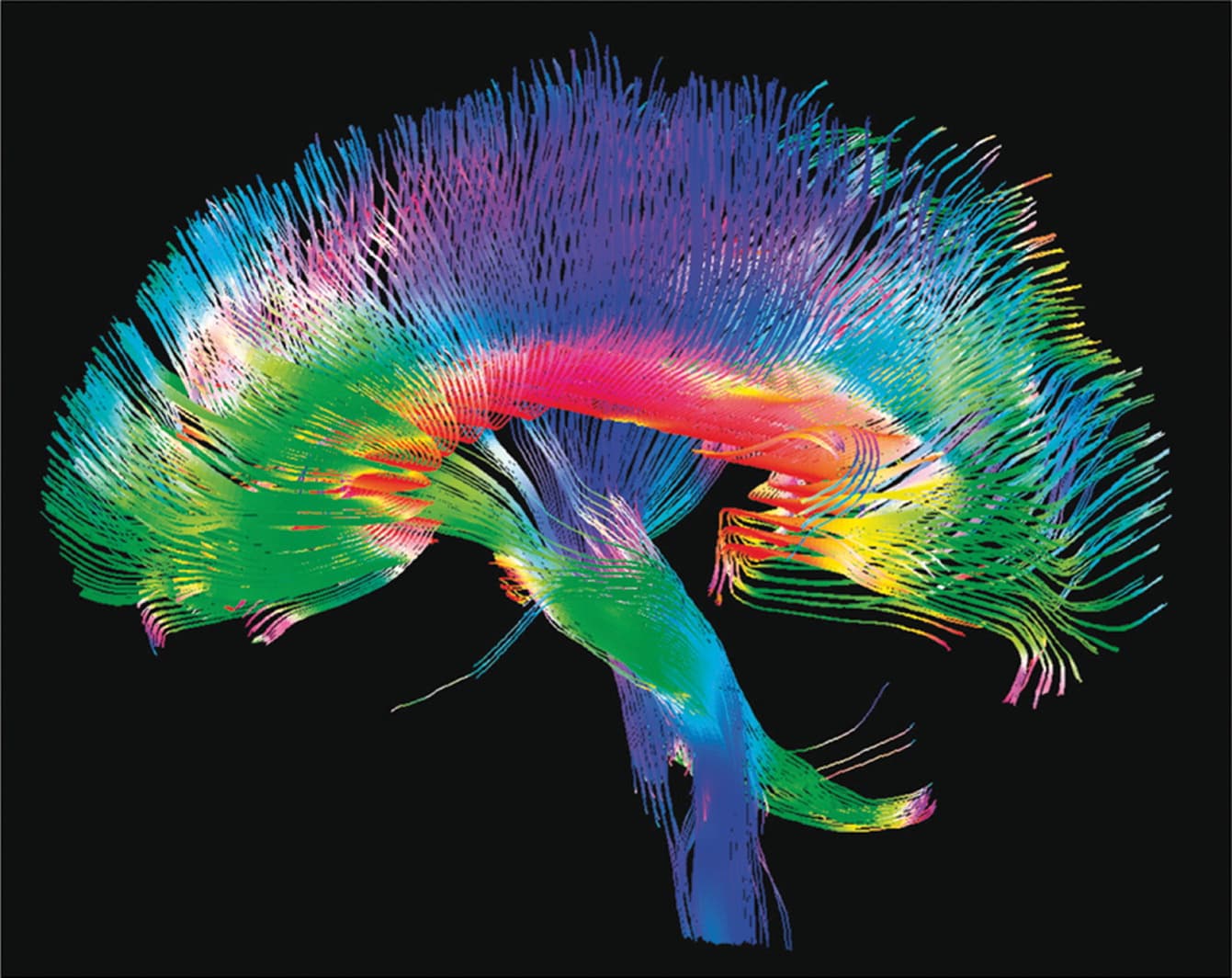The Most Studied Brain
Stanford psychologist Russell Poldrack climbed into an MRI machine and scanned his brain for 10 minutes Tuesdays and Thursdays. Every week. For a year and a half. This makes his brain the most studied in the world. He did this as part of his “My Connectome project.”
“Connectome” is the collective term describing the major networks between different functional areas of the human brain.
Poldrack attempted to find answers to the following questions: How does a connectome map relate to your brain? How long do these connections persist? Or do they vary with different conditions and moods? And what if you’re a schizophrenic, alcoholic, meditator, or videogamer, etc., how does your connectome look?
Poldrack fasted and drew blood on Tuesdays for testing with metabolomics (chemical fingerprints in biological fluids) and genomics (gene tests). You can learn more about this experiment in the video below:
What We Learned
Here are some of his most interesting finds:
- His brain connectivity was consistent, which is important for researchers studying differences between healthy brains and those of patients with neurological disorders that might result from disrupted connectivity.
- There was a strong correlation between brain activity and changes in the expression of many different families of genes.
- Fasting with no caffeine on Tuesdays made a significant impact between the somatosensory motor network and the higher vision network. “That was totally unexpected, but it shows that being caffeinated radically changes the connectivity of your brain,” Poldrack said in a Stanford video. “We don’t really know if it’s better or worse, but it’s interesting that these are relatively low-level areas. It may well be that I’m more fatigued on those days, and that drives the brain into this state that’s focused on integrating those basic processes more.”
Poldrack plans to develop software that can illuminate the interaction between brain function and gene expression. But so far he only has a single test subject: Himself.
Share This Article
